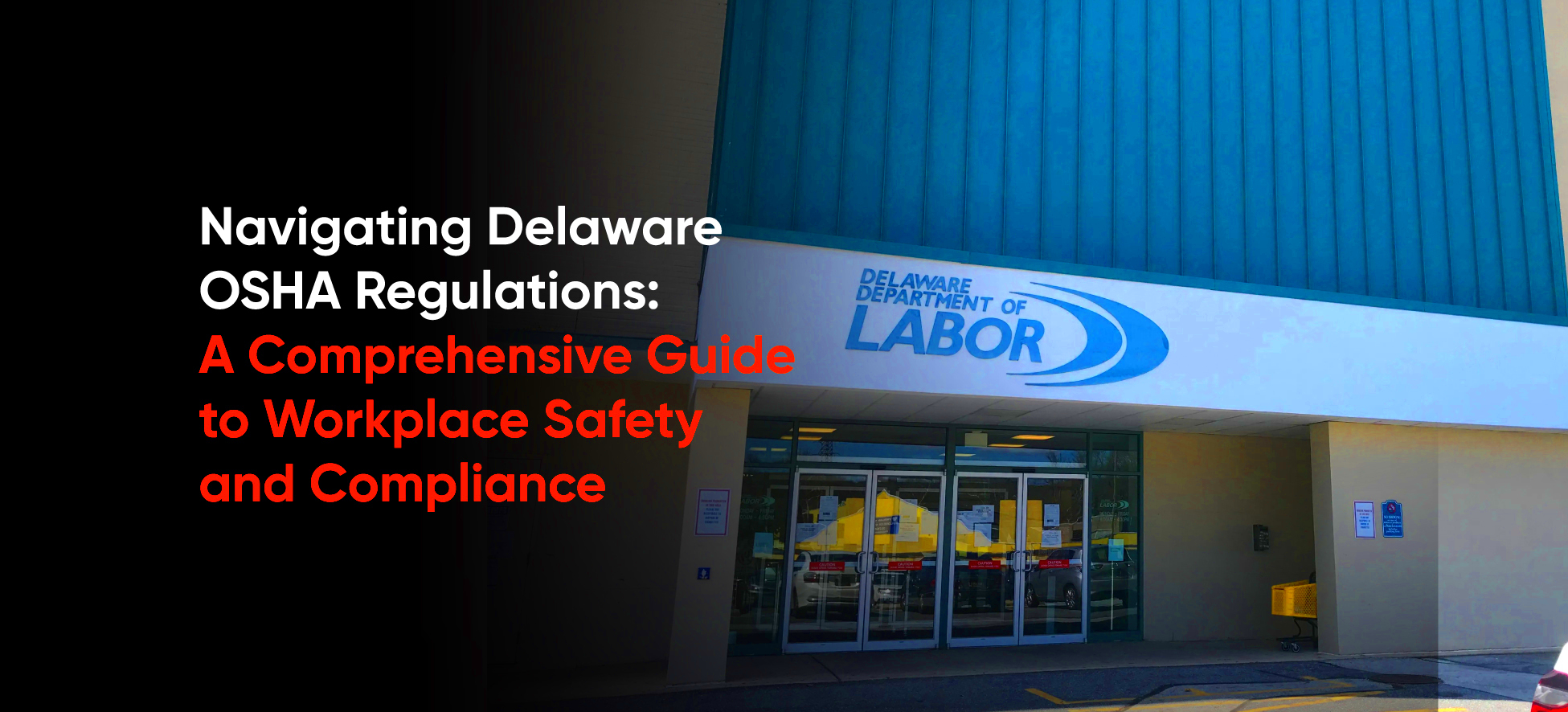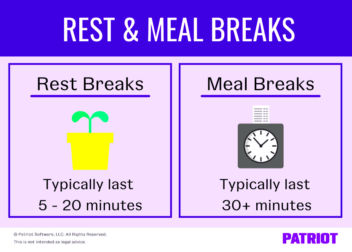Understanding Delaware Labor Regulations
Delaware labor regulations play a vital role in shaping the relationship between employers and employees. Understanding these laws is crucial for anyone working or doing business in the state. They ensure fair treatment, promote workplace safety, and establish clear guidelines for both parties. In this blog post, we’ll delve into the essential aspects of Delaware labor regulations, highlighting key laws, employee rights, and employer responsibilities.
Overview of Key Labor Laws in Delaware

Delaware has a range of labor laws designed to protect workers and create a fair working environment. Here are some key regulations:
- Minimum Wage Law: Delaware’s minimum wage is higher than the federal minimum, ensuring workers receive a fair pay.
- Overtime Pay: Employees are entitled to overtime pay for hours worked over 40 in a week, typically at a rate of 1.5 times their regular pay.
- Child Labor Laws: Strict regulations are in place to protect minors from exploitation and ensure their education is not hindered.
- Unemployment Insurance: Delaware provides unemployment benefits to eligible workers who lose their jobs through no fault of their own.
These laws aim to create a safe and equitable workplace, ensuring that employees are treated fairly while supporting businesses in maintaining compliance.
Employee Rights and Protections
Employees in Delaware have specific rights designed to protect them in the workplace. Here are some of the most important rights:
- Right to Fair Compensation: Employees should receive at least the minimum wage for all hours worked.
- Right to a Safe Workplace: Employers are required to provide a safe working environment free from hazards.
- Protection Against Discrimination: Employees cannot be discriminated against based on race, color, religion, sex, national origin, disability, or age.
- Right to Family and Medical Leave: Eligible employees are entitled to take unpaid leave for specific family and medical reasons.
- Right to Privacy: Employees have a right to privacy in their personal belongings and communications at work.
Understanding these rights empowers employees to advocate for themselves and seek recourse if those rights are violated. It’s essential for employees to stay informed and aware of their protections under Delaware law.
Employer Responsibilities under Delaware Law
Employers in Delaware have specific responsibilities that ensure a fair and safe working environment for their employees. Understanding these responsibilities is crucial for businesses to operate legally and ethically. Here’s a rundown of key employer obligations:
- Payment of Wages: Employers must pay their employees at least the minimum wage and ensure timely payment for all hours worked.
- Overtime Compensation: Employers are required to pay eligible employees overtime for any hours worked beyond 40 in a workweek.
- Recordkeeping: Employers must maintain accurate records of employee hours worked and wages paid. This is essential for compliance with labor laws.
- Anti-Discrimination: Employers must ensure their hiring and employment practices are free from discrimination based on race, gender, age, and other protected categories.
- Training and Communication: Employers are responsible for providing training on workplace safety and ensuring that employees are aware of their rights and responsibilities.
By adhering to these responsibilities, employers foster a positive work culture, reduce the risk of legal issues, and contribute to employee satisfaction and retention.
Wage and Hour Regulations in Delaware
Delaware has clear regulations regarding wages and hours to protect employees and ensure fair compensation. Understanding these regulations is essential for both employers and employees. Here are the key aspects:
- Minimum Wage: As of 2024, the minimum wage in Delaware is set at $11.75 per hour, which is higher than the federal minimum wage.
- Overtime Pay: Employees are entitled to receive overtime pay at a rate of 1.5 times their regular hourly wage for hours worked beyond 40 in a workweek.
- Pay Frequency: Employers must establish a regular pay schedule and provide employees with clear information about their wages and pay periods.
- Meal and Rest Breaks: While Delaware law does not mandate specific meal breaks, employers must provide reasonable breaks during long shifts to ensure employee well-being.
- Recordkeeping: Employers are required to keep accurate records of hours worked and wages paid to comply with state and federal regulations.
By following these wage and hour regulations, employers can avoid legal issues and create a fair workplace where employees feel valued.
Workplace Safety Standards and Regulations
Ensuring workplace safety is a top priority for employers in Delaware. The state has established safety standards and regulations to protect employees from workplace hazards. Here’s what employers need to know:
- Occupational Safety and Health Administration (OSHA): Delaware follows OSHA regulations to maintain workplace safety standards. Employers must comply with these federal regulations to create a safe environment.
- Safety Training: Employers are responsible for providing safety training to employees, ensuring they understand how to work safely and identify hazards.
- Reporting Injuries: Employers must have a system in place for reporting workplace injuries and illnesses. This helps in addressing hazards and improving safety protocols.
- Safety Equipment: Employers must provide necessary safety equipment and personal protective gear to employees to minimize the risk of injury.
- Emergency Procedures: It’s crucial for employers to establish and communicate emergency procedures, ensuring employees know what to do in case of an emergency.
By prioritizing workplace safety, employers not only comply with legal requirements but also demonstrate a commitment to their employees’ well-being, fostering a positive and productive work environment.
Understanding Leave Policies in Delaware
Leave policies in Delaware are designed to provide employees with necessary time off for various reasons while ensuring job protection. Knowing your rights and the regulations regarding leave can be a lifesaver in times of need. Here are the main types of leave policies:
- Family and Medical Leave Act (FMLA): Under FMLA, eligible employees can take up to 12 weeks of unpaid leave for serious health conditions, the birth of a child, or to care for a family member.
- Delaware Sick Leave Law: Delaware law requires employers to provide sick leave to employees. Workers accrue one hour of sick leave for every 30 hours worked, up to 40 hours per year.
- Vacation Leave: Employers may offer vacation leave as part of their benefits package. Policies on vacation time can vary significantly between companies.
- Holidays: While not required by law, many employers offer paid holidays. It’s essential to check your company’s policy regarding holiday pay.
- Emergency Leave: Some employers may offer emergency leave for unexpected circumstances, like a natural disaster or personal emergencies.
Understanding these leave policies can help you take advantage of your rights and plan effectively for personal or family needs.
Resources for Employees and Employers
Delaware offers various resources to assist both employees and employers in navigating labor regulations. Here are some valuable resources:
- Delaware Department of Labor: This is the primary agency that provides information on labor laws, wage regulations, and employee rights. Their website is a great starting point for both employees and employers.
- Employee Assistance Programs (EAP): Many employers offer EAPs that provide confidential support for personal issues, including counseling and mental health services.
- Workshops and Training: The Delaware Department of Labor often conducts workshops to educate employers on compliance with labor laws and best practices.
- Legal Aid Services: For employees needing legal assistance, Delaware has several organizations offering free or low-cost legal help related to labor issues.
- Online Resources: Websites such as the U.S. Department of Labor provide comprehensive information on federal labor laws that can complement state regulations.
Utilizing these resources can help ensure compliance with labor laws and foster a positive work environment.
FAQs about Delaware Labor Regulations
It’s common to have questions about labor regulations in Delaware. Here are some frequently asked questions that can help clarify common concerns:
- What is the minimum wage in Delaware? As of 2024, the minimum wage in Delaware is $11.75 per hour.
- Are employees entitled to overtime pay? Yes, employees are entitled to overtime pay at 1.5 times their regular hourly rate for hours worked over 40 in a week.
- How much sick leave do employees get? Employees in Delaware earn one hour of sick leave for every 30 hours worked, up to a maximum of 40 hours per year.
- Can an employee be fired for taking leave? Employees cannot be retaliated against for taking legally protected leave, such as FMLA leave or sick leave under Delaware law.
- Where can I report labor law violations? Employees can report violations to the Delaware Department of Labor, which handles complaints regarding labor law breaches.
These FAQs aim to provide clarity and help both employees and employers understand their rights and obligations under Delaware labor laws.
Conclusion on Delaware Labor Regulations
Understanding Delaware labor regulations is crucial for both employees and employers. These laws are designed to create a fair, safe, and equitable work environment. Employees must be aware of their rights regarding wages, leave, and workplace safety, empowering them to advocate for themselves effectively. On the other hand, employers have the responsibility to comply with these regulations, ensuring that they maintain ethical practices and create a positive work atmosphere. By being informed about labor laws and available resources, both parties can contribute to a productive workplace where everyone’s rights are respected.


